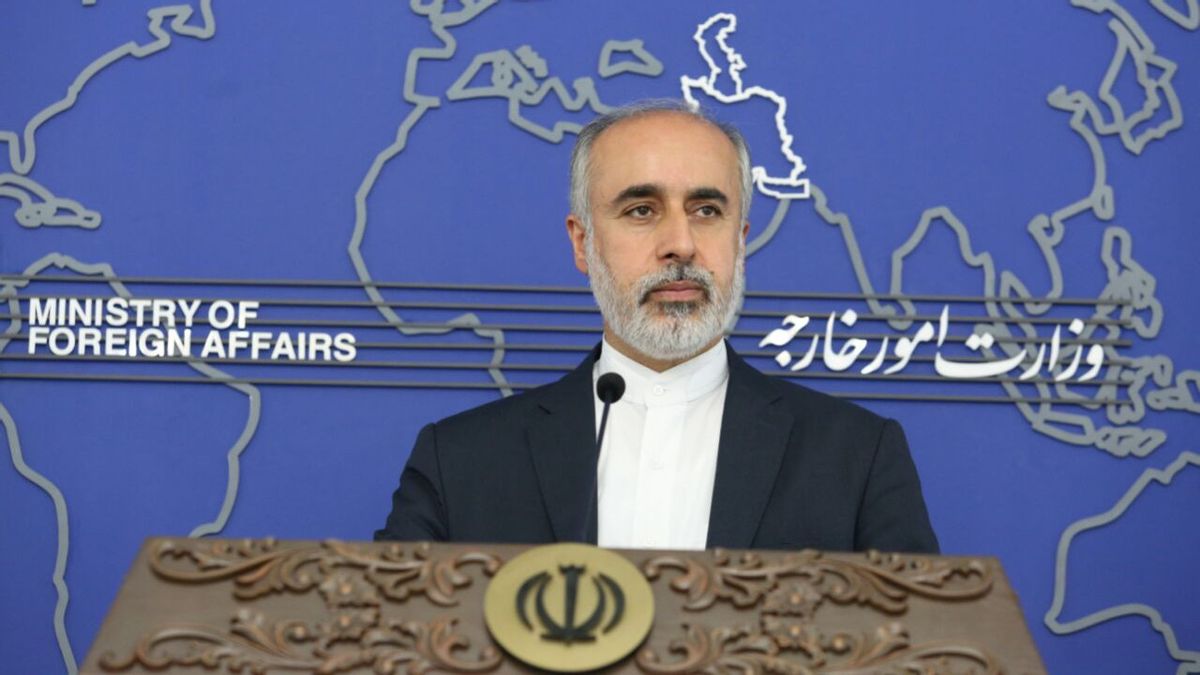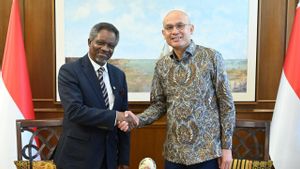JAKARTA - Iranian authorities confirmed on Monday it would not seek permission to strengthen its alliance with Russia, after the United States (US) warned the partnership posed a threat in the Middle East.
The US is concerned that the growing cooperation between Iran and Russia, which focuses on drones and missiles, could cause Tehran to expand its reach in the region.
CIA chief William Burns told PBS television on Friday the military cooperation between Iran and Russia "has posed a real threat" to US allies in the Middle East.
In response, Iranian Foreign Ministry spokesman Nasser Lecturer said the comments were "baseless" and part of a "US propaganda war against Iran".
"They are surprised to act independently in regulating their foreign relations and not asking permission from anyone," Kanani said on Sunday, according to The National News Dec. 19.
"Iran's national interest dictates its policies," he added.
"Cooperation between Iran and Russia in various fields, including defense, develops within the framework of common interests and does not conflict with any third country," said Kanani.
"American officials continue their baseless political claims and illegal acts against the Republic of Iran, questioning conventional defenses and military cooperation between Iran and Russia," he said.
Earlier, White House National Security spokesman John Kirby said on December 9, Tehran-Moscow's military partnership was "dangerous" to Ukraine, neighboring Iran and the world.
Russia is known to intend to supply Iran with new fighter jets, which would be a major boost to Tehran's old air force.
Meanwhile, Iran has used a "one-way attack drone" or Kamikaze drone, to attack commercial shipments. The same drone supplied to the Houthis militia allies, is often used in attacks on infrastructure in Saudi Arabia.
In addition, Iran has supplied hundreds of Shahed-136 drone models to Russia since September, after reports that Russia ran out of drones and missiles. Dozens of images of the wreckage of the drone have since emerged on social media, showing the typical debris of explosive V-wing aircraft.
Russia has used weapons to attack Ukraine's electricity infrastructure, killing millions in freezing winter conditions.
More attacks on Sunday night hit Kyiv's power grid, making utility workers scrambling to restore electricity as temperatures drop below zero.
Iran's feared deployment of weapons and delivery of short-range ballistic missiles, Zolfaghar Iran, has led Ukrainian allies to deploy advanced counter-drone systems such as the German and US Patriots, cost about $1 billion for a six-launcher unit.
Last month, Tehran acknowledged it had sent drones to Russia but insisted it was supplied before the invasion of Ukraine in February.
The English, Chinese, Japanese, Arabic, and French versions are automatically generated by the AI. So there may still be inaccuracies in translating, please always see Indonesian as our main language. (system supported by DigitalSiber.id)










